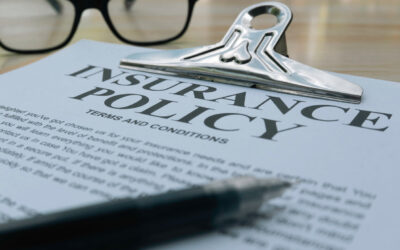Estate planning is an essential process that ensures the smooth transfer of your assets and wealth to your beneficiaries after your passing. While many people associate estate planning with wills and trusts, insurance plays a crucial role in this process, providing financial security and peace of mind. Properly integrating insurance into your estate plan can help protect your assets, reduce tax liabilities, and provide for your loved ones.
Life insurance is one of the most significant components of an effective estate plan. It provides a tax-free death benefit to your beneficiaries, which can be used to cover funeral expenses, pay off debts, or replace lost income. Life insurance ensures that your family is financially secure even after you are gone. Additionally, it can help equalize inheritances among your heirs. For instance, if one child inherits a family business, a life insurance policy can provide an equivalent monetary benefit to other children, maintaining balance and fairness.
Long-term care insurance is another vital consideration in estate planning. As people live longer, the cost of long-term care continues to rise. Without insurance, these expenses can quickly deplete your estate, leaving little for your beneficiaries. Long-term care insurance covers the costs of nursing homes, assisted living facilities, and in-home care, protecting your assets and ensuring you receive the care you need without burdening your family.
Disability insurance is essential for protecting your income and ensuring that your estate plan remains intact even if you are unable to work due to illness or injury. This type of insurance provides a steady stream of income, allowing you to maintain your standard of living and continue contributing to your estate. Without disability insurance, you might be forced to dip into your savings or retirement funds, jeopardizing your financial future and that of your beneficiaries.
Property and casualty insurance also play a critical role in estate planning. These policies protect your physical assets, such as your home, vehicles, and valuable personal property, from loss or damage. By safeguarding these assets, property and casualty insurance helps ensure that your estate remains intact and that your heirs receive the full value of your legacy. Additionally, these policies provide liability coverage, protecting you from lawsuits that could otherwise erode your estate.
Business owners should also consider key person insurance as part of their estate planning strategy. This type of insurance provides a death benefit to a business if an essential employee, such as a partner or key executive, passes away. The proceeds can be used to cover the costs of finding and training a replacement or to buy out the deceased person’s share of the business. Key person insurance helps ensure the continuity and stability of your business, protecting its value for your heirs.
Integrating insurance into your estate plan requires careful consideration and expert guidance. It’s important to assess your unique needs and goals, and to select the right policies to protect your assets and provide for your beneficiaries. Consulting with knowledgeable professionals can help you navigate the complexities of estate planning and insurance, ensuring that your plan is comprehensive and effective.
Koch Insurance Group understands the vital role that insurance plays in estate planning. Serving the Houston area, they offer a range of insurance solutions tailored to meet your specific needs. Their experienced associates will help you select the right coverage at the right price, providing peace of mind and financial security for you and your loved ones. Trust Koch Insurance Group to help you integrate insurance into your estate plan, ensuring that your legacy is protected for future generations.











